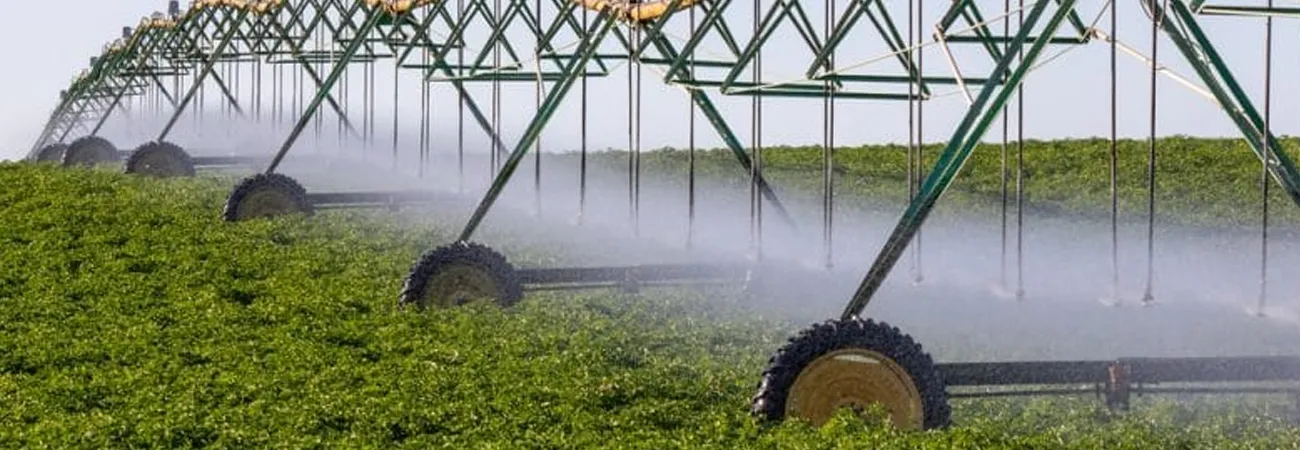i ECONOMY
As Pakistan strives to meet the growing food demand of its burgeoning population and address the challenges posed by climate change, integration of modern irrigation methods in the rain-fed areas will mark a significant step towards a more resilient and sustainable agricultural sector. “Traditionally reliant on the whims of the monsoon, the rain-fed areas in Pakistan often face water scarcity during the dry spells, leading to diminished crop yields and economic hardship for farmers. Keeping this factor in view, there is a growing need to shift towards embracing modern irrigation methods to enhance agricultural output,” said Ms Saiqa Imran, Deputy Director of the Pakistan Council of Research in Water Reservoirs (PCRWR), in an interview with WealthPK.
One of the promising techniques is drip irrigation. This method involves precise application of water directly to the base of plants, minimizing wastage and ensuring optimal moisture levels for crops. By utilizing a network of tubes and pipes, drip irrigation not only conserves water but also promotes water-use efficiency, making it a game-changer for regions with erratic rainfall. “Furthermore, adoption of sprinkler irrigation is on the rise. This method mimics the natural rainfall by distributing water through a system of pipes and nozzles, covering a large area efficiently. Sprinkler irrigation will not only address water scarcity but also facilitate uniform water distribution, reducing the risk of overwatering or underwatering specific areas of the field,” she said.
“The adoption of drip and sprinkler irrigation systems is a critical stride toward mitigating the challenges posed by the erratic rainfall patterns on our agricultural landscape. These methods offer a more controlled and efficient approach to water distribution, addressing the longstanding issue of water scarcity in rain-dependent regions," she added. Regarding the integration of technology, Ms Saiqa believed that smart irrigation systems play a pivotal role in empowering the farmers with real-time data.
"Smart systems equipped with sensors and automation provide farmers with valuable insights into soil moisture levels, weather conditions, and crop water requirements. This data-driven decision-making is crucial for adapting to the unpredictable nature of rainfall and optimizing water usage," she said. She praised the government's initiatives to incentivize the adoption of these modern irrigation techniques. "Financial support, training programs, and subsidies are vital components in encouraging farmers to embrace sustainable practices,” she added.
Credit: Independent News Pakistan (INP)









